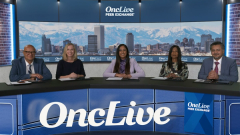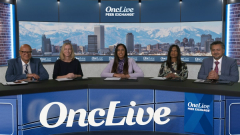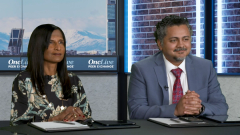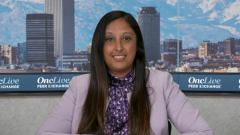
Advances in the Treatment of High-Risk MM
Clinical insights on the definition of high-risk multiple myeloma and the treatment of patients with high risk disease, including how the results from the IsKia trial might impact practice.
Episodes in this series

This is a video synopsis/summary of a Peer Exchange featuring Krina K. Patel, MD, MSc; Amrita Krishnan, MD; Caitlin Costello, MD; Saad Z. Usmani, MD, MBA, FACP; and Rafat Abonour, MD.
The group discusses early results from the IsKia trial presented at the 2023 American Society of Hematology (ASH) Annual Meeting & Exposition evaluating isatuximab plus carfilzomib, lenalidomide, and dexamethasone (KRd) vs KRd alone in newly diagnosed, transplant-eligible multiple myeloma patients. Similar to prior studies with daratumumab, the quadruplet regimen including isatuximab showed high minimal residual disease negativity rates, suggesting deep and durable responses can be achieved by adding CD38 antibodies to triplet regimens pre- and post-transplant.
The discussion then shifts to defining high-risk multiple myeloma, which is associated with worse progression-free and overall survival outcomes. High-risk disease is defined by the International Myeloma Working Group as having certain cytogenetic abnormalities like 1q amplification, 17p deletions, or other translocations. Ultrahigh-risk disease is present when patients have 2 or more high-risk cytogenetics. With aggressive quadruplet induction and consolidation, remission rates can improve even in high-risk patients, but sustaining minimal residual disease negativity remains challenging. Ongoing trials are evaluating whether tandem autologous stem cell transplantation may further improve durable responses.
Video synopsis is AI-generated and reviewed by OncLive® editorial staff.










































